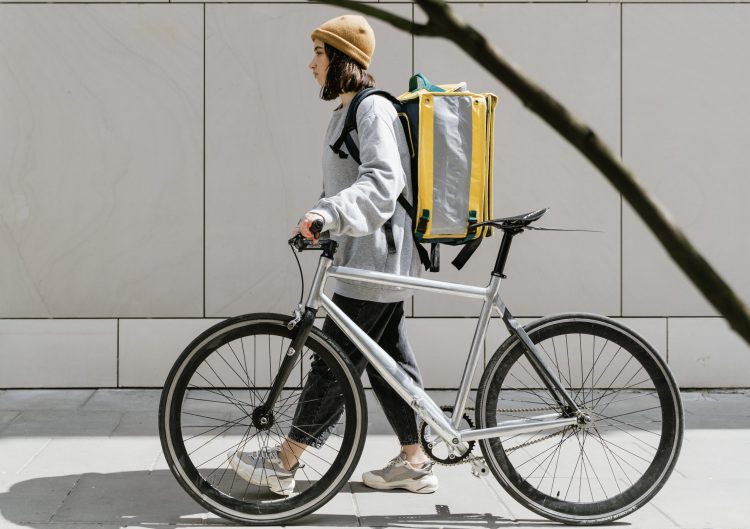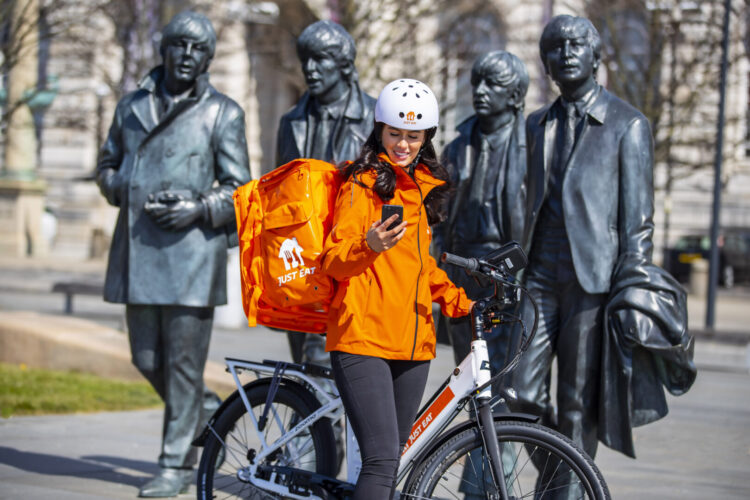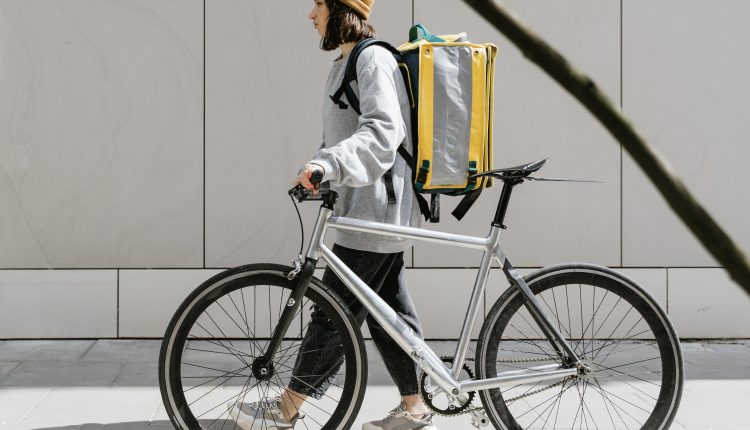Mayor’s £700,000 tech investment starts to deliver
A tech venture backed by Metro Mayor Steve Rotheram to take on the might of big delivery giants such as Amazon, Deliveroo and Just Eat is up and running in Liverpool city region. Tony McDonough reports

More than two dozen independent restaurants and retailers are now benefiting from technology developed by a venture that secured £700,000 from Liverpool city region Mayor Steve Rotheram.
Liverpool-based Peepl was originally launched in 2018 and offers a payments and rewards platform for local independent businesses. It pioneered a localised currency called ‘Peepl Tokens’ to flow between sellers and buyers in the network.
Its token model is supported by Fuse, a blockchain network, for quick and cheap transactions. The tokens can only be spent within the network, which keeps the money circulating within the city region economy.
In November last year, Peepl, founded by entrepreneur Leon Rossiter, secured a £700,000 investment from the Liverpool City Region Combined Authority to develop a payment, rewards and delivery platform that would take on giants such as Amazon, Deliveroo and Just Eat.
Deliveroo and Just Eat, as well as Uber Eats, typically charge local restaurants up to 37.5% commission on each meal sold and delivered. This issue was highlighted during the pandemic when many restaurants were forced to pivot to a delivery-only service.
This means, says Leon, that too much money is flowing out of the local economy into the coffers of these large corporations. He said last year: “The big delivery apps extract large amounts of value from each transaction. I think most people are waking up to the fact that it doesn’t need to be this way.”
Speaking to LBN this week, Leon said Peepl’s technology was now being piloted by a North West venture called Shocal, which established an order and delivery system for independent businesses in Manchester before expanding to other areas including Liverpool.
Shocal is utilising the software developed by Peepl and started working with independent outlets in February. So far, around 25 have signed up. Around three-quarters are food outlets with the rest non-food retailers. It started off in Liverpool and is now spreading out to other Merseyside locations such as Prescot.
The delivery element of the project is being handled by a cycling co-operative called Agile Liverpool. Agile employs people on a full-time equivalent basis and will train and upskill new recruits using the Kickstart Scheme. Acting as a facilitator, Peepl has brought the delivery partners together with Agile.
“Shocal started testing in the first couple of weeks of February and they now have around 25 retailers in the city centre,” said Leon. “Peepl is a payments and rewards technology business. They are using our rewards platform but they will soon be moving onto the stable coin eco system that we have created.
“We have multiple apps launching in the next 12 weeks. One will be focused on the vegan/vegetarian delivery market and another for a venue called Cafe Laziz in St Helens. They will also be using our open source food delivery technology.”
READ MORE: Mersey tech start-ups can access Silicon Valley support
At the heart of the Peepl model is open-source technology. Early software developers would frequently collaborate and share their ideas and computer code. However, the emergence of tech giants such as Microsoft and Apple in the 1970s and 80s ushered in the age of proprietary software.
Companies keen to maximise the value of their intellectual property would keep their code under wraps. Users of the software, for example Microsoft Word, could purchase a licence to use it within fixed parameters but were not able to get ‘under the bonnet’ and change or adapt it to suit their individual needs.
So rather than being fixed and centrally-controlled by the original developer, open source software can be adapted and changed to suit the needs of different users. This not only encourages collaboration between local businesses, it also means change and innovation can happen more quickly.
Peepl is exploiting the nimbleness of open source technology in an attempt to create a fast-evolving business eco-system within the Liverpool city region where more of the wealth created by local businesses stays here.

Leon explained: “That was the difference with the Combined Authority (CA). They didn’t just pick a company to invest in. They picked a team that can create a technology that can exist even beyond the life of the company, because of the open source nature of it.
“They are investing in technology that is open sourced and that is quite forward-thinking. Entities such as Deliveroo, Amazon and Uber are all extracting money out of local economies. We are here to try to counteract some of that leakage.
“All of those rewards that are created are going back to the customer and can’t leave Liverpool. This is about grouping up the local economy. In the next few weeks we have an app launching in the media space that should have a big influence on the marketing side.”
Mr Rotheram added: “In the Liverpool city region, we aren’t the sort to simply follow the crowd. We like to be disrupters – to chart our own course and find new, innovative ways to get things done.
“Peepl has the potential to disrupt the food delivery market by introducing of all those values to it. We believe it will help to foster much more fairness to an industry that, for too long, has been dominated by certain operators with a poor track record for not treating restaurants or staff particularly well.
“Thanks to our investment, it’s fantastic to see Peepl has gone from strength to strength and is already spreading beyond Liverpool city centre and into other parts of our region.”

